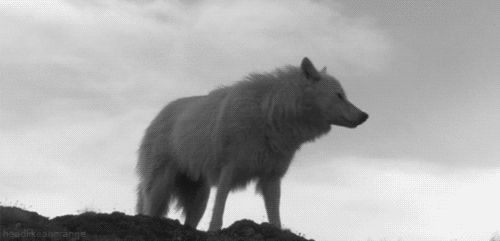Personality Changes
A lot of pop culture today – not all of it, but quite a bit – includes some sort of lore or another about becoming a werewolf changing one’s personality traits. Maybe it makes them more aggressive, maybe it gives them weird instincts and/or urges, or maybe it simply turns them into complete evil assholes. It varies.
So the question is, did becoming a werewolf ever force some kind of personality changes in folklore?

The answer, put simply, is… No.
In folklore, the personality of werewolves came in a few different packages…
The personality of werewolves didn’t change whatsoever. This is absolutely the most common, and I’d call it the easy answer to a question of whether or not their personalities change.
We didn’t know the werewolf before they became a werewolf, so we wouldn’t know if their personality changed at all (but generally they are normal, nice people, in either/both forms). This is common in some of my favorite stories, such as Bisclavret. Remember, werewolves were often noble knights, guardians, and/or werewolves were benevolent in general in folklore, up until the Early Modern period.
Occasionally, but in only a few stories, it’s implied that becoming a werewolf might give someone urges and/or a sort of bloodlust. This was meant as a trial to see if one can retain humanity while in the form of a beast. This is almost exclusively from legends related to Arcadia in ancient Greece.
Another important thing to note, though, is that werewolves do not lose their intelligence, or lose intelligence in any way, in either form. This is something I stress in a lot of my werewolf facts, I know, but there it is again! Werewolves are absolutely not mindless killing machines, unintelligent, or “evil.”
Berserkers are something else to potentially touch upon, as they fly into the berserk rages (and then there are stories about people like Kveldulf, who is one of my favorite werewolves; he is covered in my post on berserkers). That’s another topic entirely. Some more details on werewolves fully retaining their personality, intelligence, and memories can also be found here.
So the main takeaway here is that the concept of werewolves changing personalities and/or interests, etc., is essentially not a thing in folklore and is often blown ridiculously out of proportion in pop culture.
Don’t get me wrong – I can find some elements of it fun, personally, when used sparingly and not taken to an extreme. I covered that kind of thing (and my opinions on that stuff) more in this post.
But a lot of this whole “becoming a werewolf changes your personality/who you are as a person” is… not okay, in my opinion.
Firstly, we have a bad culprit, which is Dungeons & Dragons. Even now, the rules state that the instant someone becomes a werewolf, their alignment changes to Chaotic Evil. Most DMs I know are willing to skirt around this rule, and some of the video games I’ve played ignore it entirely – but it’s still technically there, and that really bothers me. A character can be a pure good beacon of righteousness and the instant they become a werewolf they have a complete and total shift of personality – in both forms – to pure chaotic evil. It’s ridiculous. Talk about turning werewolves into simple, mindless, throwaway evil tropes.
It happens in a lot of things. It even happened with sims’ personalities in the Sims 2. Like, really? Ugh.
At any rate, long story short? Werewolves in folklore weren’t like that.
Werewolves in folklore were people, too, and being a werewolf didn’t change them or their personality.
Not in human form, and their werewolf form wasn’t a brainless evil killing machine. And that sort of thing is something I’d personally love to see more in pop culture today.